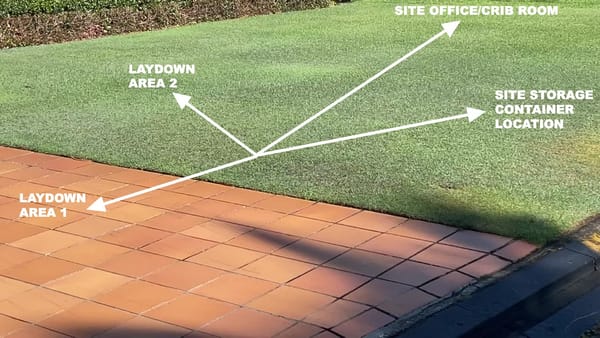Introduction
As a prospective home buyer, understanding the complexities of the home construction contract is crucial. This legally binding agreement outlines the terms and conditions between you and your builder, ensuring that the building process aligns with your expectations and budget.
But here's the good news: these contracts aren't set in stone.
You have the opportunity to negotiate terms to better suit your needs and potentially secure a better deal.
In this post, we explain the components of a home construction contract, explore when and how you can negotiate, and provide practical tips to navigate this critical aspect of the new construction home-buying process.
What Is a Home Construction Contract?
A home construction contract, also known as a building contract or construction agreement, is a formal document that details the scope of work, timelines, payment schedules, and responsibilities of both the homeowner and the builder. Whether you're considering production homes or custom homes, this contract serves as the foundation of your real estate transaction, ensuring clarity and accountability throughout the building process.
When Do You Need a Home Construction Contract?
You need a home construction contract when you're engaging a builder to construct a new house, whether it's a brand-new home in a new neighbourhood or a custom build on your own land. This contract is essential before any work begins, as it protects both parties by clearly outlining expectations, deliverables, and legal obligations.
What's Included in a Home Construction Contract?
A comprehensive home construction contract should include:
1. Project Description and Scope of Work
This section outlines the specifics of your new build, detailing the type of construction—be it a custom home or a production home—and the chosen floor plan. It includes information about the base model, any customisation, and the materials to be used. For instance, if you've selected a premium lot or desire specific light fixtures, these should be explicitly mentioned here.
2. Contract Price and Payment Terms
Understanding the financial aspects is paramount. The contract should clearly state the base price of the home, any lot premiums, and additional costs for upgrades or custom features. Payment terms, including the schedule for progress payments and the amount of the earnest money deposit, should be detailed. This section also covers the total purchase price and outlines any potential for price reductions or incentives, such as free upgrades.
3. Timeline and Completion Dates
A well-defined timeline sets expectations for the construction process. The contract should specify the start date, key milestones, and the anticipated completion date. It's essential to understand how delays are handled and whether there are provisions for penalties or extensions.
4. Change Orders and Variations
During construction, you might decide to make changes—perhaps opting for different light fixtures or altering the floor plan. The contract should outline the process for requesting changes, how costs are calculated, and the impact on the construction timeline. Understanding this process ensures transparency and helps manage the overall costs.
5. Warranties and Defects Liability
Builders typically provide warranties covering workmanship and materials. The contract should specify the duration of these warranties and the process for addressing any defects. For example, if issues arise with the installed light fixtures or other aspects of the home, the contract should detail how and when these will be rectified.
6. Dispute Resolution Mechanisms
Disagreements can occur, and it's vital to have a clear process for resolving them. The contract should outline the steps for dispute resolution, which may include mediation or arbitration, ensuring that both parties can address concerns effectively.
7. Termination Clauses
Circumstances may arise where either party needs to terminate the contract. This section should detail the conditions under which termination is permissible, any associated penalties, and the process for settling outstanding matters.
8. Inclusions and Exclusions
To avoid surprises, the contract should list what's included in the construction—such as appliances, landscaping, or specific fixtures—and what's not. For instance, if certain light fixtures are considered upgrades, this should be clearly stated.
9. Final Walk-Through and Handover
Before taking possession of your brand-new home, a final walk-through is conducted to ensure all work meets the agreed-upon standards. The contract should outline this process, including how any identified issues will be addressed.
Who Typically Creates a Home Construction Contract?
Typically, the builder or their legal team drafts the initial construction contract. However, it's in the builder's best interest to have terms that favour them, which is why it's crucial for home buyers to review the contract thoroughly.
Engaging an experienced realtor or a buyer's agent can provide valuable insights and help negotiate terms that align with your interests.
When Can You Negotiate a Home Construction Contract?
Understanding the optimal times to negotiate your home construction contract can lead to significant benefits, including securing the best deal and ensuring the building process aligns with your expectations.
1. Before Signing the Purchase Agreement
The most opportune moment to negotiate is before you sign the purchase agreement. At this stage, you have the most leverage to discuss various aspects of the contract, such as:
- Base Price and Upgrades: Discussing the base price and potential free upgrades can lead to a better deal. Builders may be open to including premium features or light fixtures at no additional cost.
- Lot Premiums: If you're interested in a premium lot, this is the time to negotiate any additional costs associated with it.
- Closing Costs: Some builders may offer incentives to cover part or all of the closing costs, especially if you're using their preferred lender.
2. During Slower Market Periods
Timing can significantly impact your negotiation power. Builders are more likely to offer incentives or price reductions during slower periods in the real estate market.
- End of the Year: Builders aiming to meet annual sales targets may be more flexible with pricing and upgrades.
- Economic Downturns: During times when the demand for new construction houses decreases, builders may offer better deals to attract buyers.
3. When Purchasing Spec Homes or Ready Homes
Spec homes, also known as ready homes, are properties that builders construct without a specific buyer in mind. Since these homes are already built or near completion, builders may be more motivated to sell them quickly, providing an opportunity to negotiate:
- Sales Price: There's often more wiggle room to negotiate a lower price on spec homes.
- Inclusions: Builders might include additional features or appliances to make the deal more attractive.
4. When You're the First Buyer in a New Development
Being the first buyer in a new neighbourhood can position you advantageously. Builders often want to kick start sales in a new development, so they might offer:
- Price Reductions: To attract initial buyers and set a sales precedent.
- Free Upgrades: Including premium features at no extra cost to showcase the quality of the homes.
5. If You're Using the Builder's Preferred Lender
Opting for the builder's preferred lender can sometimes lead to additional incentives.
- Lower Interest Rates: Preferred lenders may offer competitive rates to buyers.
- Assistance with Closing Costs: Builders might cover a portion of the closing costs if you use their lender.
However, it's essential to compare offers from outside lenders to ensure you're getting the best deal. Trailing commissions keep sellers happy and are often built into the deal terms. make sure your happy with these terms BEFORE agreeing to them.
6. When Engaging an Experienced Realtor or Buyer's Agent
Having a skilled realtor or buyer's agent can significantly impact your negotiation success. They can:
- Provide Market Insights: Helping you understand the current real estate market and identify the best time to negotiate.
- Advocate on Your Behalf: Experienced agents can negotiate terms that align with your interests, ensuring you get the best price and terms.
Always remember to review the fine print and consult with professionals, such as a good real estate agent or a home inspector, to navigate the building process effectively.
Challenges of Negotiating a Home Construction Contract
Negotiating a home construction contract can be a complex process, especially for first-time home buyers. Understanding the potential challenges can help you navigate the building process more effectively and secure the best deal for your brand-new home.
1. Standardised Contracts Favouring Builders
Many builders, particularly national builders and production builders, use standardised contracts such as those provided by the Housing Industry Association (HIA) or Master Builders Australia.
These contracts are often drafted to protect the builder's best interest, potentially leaving little wiggle room for modifications.
This can make it challenging for home buyers to negotiate terms that align with their specific needs and expectations.
2. Limited Flexibility with Production Builders
Production builders typically offer a set range of floor plans and design options, limiting customisation opportunities. While this approach can lead to a lower price point, it may restrict your ability to negotiate on aspects like light fixtures, premium lot selections, or other specific features.
In contrast, custom builders may offer more flexibility but often at a higher price.
3. Pressure to Use Builder’s Preferred Lender
Builders often encourage buyers to use their preferred lender by offering incentives such as free upgrades or assistance with closing costs. While this might seem like a good deal, it's essential to compare offers from outside lenders to ensure you're getting the best interest rate and loan terms.
Relying solely on the builder's lender may not always be in your best financial interest.
4. Understanding the Fine Print
Home construction contracts can be lengthy and filled with complex legal jargon. Overlooking the fine print can lead to misunderstandings about the terms of the contract, including the base price, lot premiums, and potential additional costs. Engaging an experienced real estate agent or buyer's agent can help you navigate these complexities and ensure you fully understand the terms before signing.
5. Market Conditions Affecting Negotiations
The real estate market's condition can significantly impact your ability to negotiate. In a seller's market, where demand for new construction homes is high, builders may be less inclined to offer price reductions or free upgrades.
Conversely, during slower periods, such as the end of the year, there may be more opportunities to negotiate a better deal.
6. Potential for Construction Delays
Delays in the building process can arise due to various factors, including tabor shortages, supply chain issues, or unforeseen circumstances. These delays can affect the final price and timeline of your new build. Ensuring that the contract includes clear terms regarding timelines and penalties for delays can help mitigate these risks.
7. Hidden Costs and Upgrades
While the base price of a new construction house might seem attractive, additional costs for upgrades, lot premiums, and homeowners association (HOA) fees can quickly add up.
Best Practices and Recommendations for Negotiating
To navigate the negotiation process effectively:
- Do Your Research: Understand the current real estate market and compare offerings from different builders to identify a good deal.
- Engage a Skilled Real Estate Agent: An experienced real estate agent or buyer agent can provide valuable advice and advocate on your behalf. If they are wearing coloured socks or a themed jacket - run for the hills!
- Review the Contract Thoroughly: Pay close attention to the terms of the contract, including any clauses related to the construction loan, interest rate, and closing costs.
- Get legal advice from a construction lawyer: Yes—you’ll typically pay $2,500 to $5,000 for this service. But if you’re unsure what you’re getting into, have the contract reviewed, flagged for risks, and discuss your options with a qualified construction lawyer before signing.
- Ask About Incentives: Inquire about free upgrades, price reductions, or assistance with closing costs.
- Be Prepared to Walk Away: If the terms don't meet your needs, be willing to explore other new construction properties or custom builders. Walking away is often a good negotiation tactic to know how immediate the seller wants to offload.
Digital Administration of Home Construction Contracts
In today's digital age, managing construction contracts has become more streamlined. Various software solutions allow for digital administration, making the process more efficient and accessible.
Some notable options include:
- Procore: Offers comprehensive contract management features, including electronic signatures and real-time collaboration (an expensive solution for most except large construction companies with deep pockets or marketing budgets).
- Zoho Contracts: Provides clause-based analytics and customisable templates for construction contracts.
- Contract Bee by Digital Beehive: Specialises in NEC (New Engineering Contracts - UK) contract management, offering centralised solutions for contract administration.
- Mastt: Provides cost planning, time (schedule), risk and cost management, offering budgeting, variation, forecasting plus contract administration (variations, payment schedules and retention's).
These platforms facilitate better communication between home buyers, builders, and mortgage lenders, ensuring that all aspects of the home construction contract are handled professionally and transparently.
Conclusion
Negotiating your new home construction contract is not only possible but also advisable to ensure that your investment aligns with your expectations.
Embracing digital tools for contract management further enhances transparency and efficiency, paving the way for a smoother journey toward your brand-new home.
Frequently Asked Questions (FAQs)
1: Can I negotiate the base price of a new construction home?
Yes, while builders often have set pricing, there may be room for negotiation, especially during slower market periods or if you're the first buyer in a new development.
2: Are lot premiums negotiable?
Lot premiums can sometimes be negotiated, particularly if the builder is eager to sell specific lots or during promotional periods.
3: What are spec homes, and can I negotiate their price?
Spec homes are newly constructed homes built without a specific buyer in mind. Since they're ready homes, builders may be more willing to negotiate on price or offer free upgrades to sell them quickly.
4: How can a buyer's agent help in the negotiation process?
A buyer's agent brings expertise in real estate transactions, helping you understand the contract terms, negotiate better deals, and navigate the building process effectively.
5: Can I make changes to the floor plan after signing the contract?
Changes to the floor plan after signing may be possible but could incur additional costs. It's best to finalise your desired layout before signing the contract.
6: Is it better to build a custom home or choose a production builder?
Custom homes offer more customisation but can be more expensive and time-consuming. Production builders provide standardised options at a potentially lower price point, offering a balance between customisation and cost.
7: What is an earnest money deposit, and is it refundable?
An earnest money deposit shows your commitment to the purchase. Whether it's refundable depends on the contract terms and contingencies outlined in the agreement.
8: How do I ensure I'm getting a good deal on my new construction home?
Research the real estate market, compare different builders, consult with a good real estate agent, and don't hesitate to negotiate terms to align with your budget and preferences.
9: Can I use an outside lender instead of the builder's preferred lender?
Yes, you can choose an outside lender. It's advisable to compare loan offers to ensure you're getting the best interest rate and terms, even if the builder offers incentives for using their preferred lender.
Further Reading




















